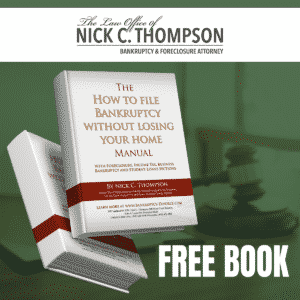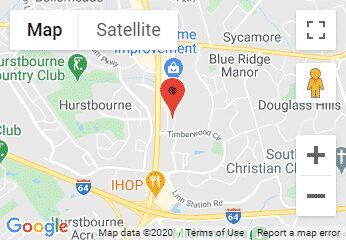The most important benefit of Chapter 13 bankruptcy is that it allows you to catch up on a mortgage or auto loan. First, the temporary court order that stops collections is the stay. Then, the protection of the stay stops collections and lasts for 3-5 years. During that time, it allows debtors the ability to catch up on the mortgage or car loan. It gives you, the debtor, time to complete a mortgage modification or sell the home. Plus, paying an attorney fee is an inexpensive option if you compare the cost of moving, losing the home, and lost equity.
The Benefits of a Chapter 13 Bankruptcy • What Every Debtor Needs to Know
Often a temporary disability or sudden medical expenses force people into bankruptcy. However, you can take up to five years to catch up on a mortgage or car loan after you are temporarily out of work. Additionally, filing a Chapter 13 or any bankruptcy at least delays a foreclosure. Sometimes Chapter 13 is necessary because the foreclosure is proceeding even while you file for a short sale or mortgage modification.
The process of pursuing foreclosure while processing a mortgage modification or short sale is “dual tracking.” Mortgage servicers often do it while they talk to you about saving your home. This is because mortgage servicers earn their fees from collecting late fees. There are no late fees after the loan is up to date. Remember, the mortgage servicer or collection agency works for himself or the mortgage company, not you. So, always turn to your attorney!
⎆ The ability to strip a second mortgage or cram down an auto in Chapter 13.
Debtors often strip second mortgages in the process or cram down a car loan. You can also reduce interest in Chapter 13 for your car to 15 over the till rate which in 2017 is about 5%. If Chapter 7 can’t remove the second mortgage, it might be less expensive to file Chapter 13.
Additionally, Chapter 13 may allow you to pay back what the car or home is really worth if you have negative equity. However, a car loan must be over 910 days old. If the auto loan is not over 910 days old, you may still cram down a car if it is a commercial vehicle or if the loan did not finance the purchase of the auto. Also, if the auto was refinanced it may be crammed down. But, the first mortgages on your residence cannot be stripped. On the other hand, you might be able to strip commercial mortgages or vacation homes.
⎆ Other useful benefits of a Chapter 13 bankruptcy.
For some people who filed Chapter 7 within the last 8 years, Chapter 13 may be the only option for them. A Chapter 13 bankruptcy allows you to pay off an income tax debt and stops income tax penalties and interest from continuing to accrue. If you are single or have no children as a couple and make over $100,000, Chapter 13 might be your only option. People who make too much money and have little or no necessary expenses are required to repay something.
Chapter 13 allows you to pay back unsecured debt with only what you can afford often less than 10%. Debt settlement companies will rarely go below 50%. Priority debts such as taxes and child support are paid in full before secured debt. Then, the last debts to be paid are the unsecured debts with what is leftover.
⎆ Proving your ability to fund Chapter 13 bankruptcy.
A person only needs to prove they can afford a monthly payment into the Chapter 13 plan to make the plan feasible. The income has to be steady but it can be from child support, social security, or wages. In fact, Chapter 13 is often called a wage earner plan but any income is considered in determining whether you have enough to pay back the mortgage or car loan over time.
Some people who earn high wages may be forced into a Chapter 13 plan because they have disposable income. If you have disposable income after necessary and reasonable deductions are taken from your income then you are required to file as a Chapter 13. However, well over 95% of people qualify for a Chapter 7 if they want to file as a Chapter 7.
A Chapter 13 must pay back any priority income taxes and child support within the 3-5 year period. You may need to file a chapter 13 if you don’t have enough exemptions to keep a non-exempt asset. You and your spouse may keep a $200,000 home if you have about a 150,000 mortgage in Kentucky because each of you may claim about $25,000 in exemptions in the property. If you didn’t have that $150,000 mortgages you would lose the property in Chapter 7 or be required to repay $150,000 in Chapter 13.
⎆ Summary.
An experienced attorney can sit down with you and plan the best long-term solution. If your debts discharge at the end of Chapter 13 you have no personal liability just like Chapter 7. But for many people, the only reason for filing is to save a home. Or, once the payments catch up or you obtain a mortgage modification, workout, or forbearance, the discharge may not be necessary.
Often Chapter 13 is filed to prevent a sale. But, you must plan with your attorney early to prevent problems. Remember the mortgage company will talk about mortgage modification while they pursue a foreclosure. For a free consultation give us the call 502-625-0905.
 Resources for Bankruptcy
Resources for Bankruptcy
Louisville Kentucky Bankruptcy Forms
Other Related Information
Benefits of a Chapter 7 Bankruptcy • Video
How to Avoid Mortgages & Strip Liens
How to Manage Your Car Loans in Bankruptcy
Chapter 13 Bankruptcy in Louisville Kentucky
If you are thinking about filing bankruptcy, don’t delay because timing is crucial. I am here to help you. So, contact my office right away to start the conversation. Nick C. Thompson, Bankruptcy Lawyer: 502-625-0905.








